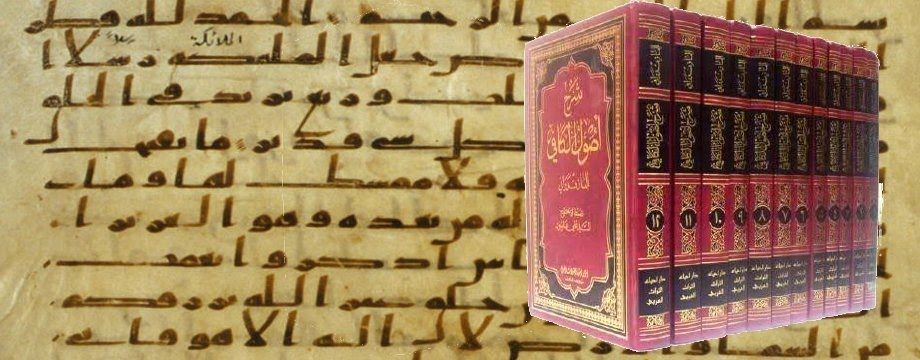Tagged With: jaffer.ir
Which work did Shaykh al-Tusi write first – his Rijal or his Fihrist?
This is an interesting question and quite relevant to the understanding of the differences that are found in these two works of al-Shaykh. Many scholars think that the Fihrist was written before the Rijāl because: (a) Shaykh al- Ṭūsī refers to his Fihrist in his Rijāl (b)He also asks the reader to look for more … Continue reading
The General Attestation of Reliability (al-tawthiq al-‘am) of the Banu Faddal
In his Kitāb al-Ghaybah, Shaykh al-Ṭūsī quotes a narration from one of the special deputies of the 12th Imam, al-Ḥusayn ibn Rūḥ, in which he says that the 12th Imām was asked about the books of Ibn Abī al-Ghazāqir after he had been censured and a malediction had been pronounced against him. The Imām (‘a) … Continue reading
The “difficult” narrations of the Ahl al-Bayt (‘a)
Kulayni reports the following in al-Kafi (vol. 1 p. 401) قَالَ أَبُو جَعْفَرٍ ع قَالَ رَسُولُ اللَّهِ ص إِنَّ حَدِيثَ آلِ مُحَمَّدٍ صَعْبٌ مُسْتَصْعَبٌ لَا يُؤْمِنُ بِهِ إِلَّا مَلَكٌ مُقَرَّبٌ أَوْ نَبِيٌّ مُرْسَلٌ أَوْ عَبْدٌ امْتَحَنَ اللَّهُ قَلْبَهُ لِلْإِيمَانِ فَمَا وَرَدَ عَلَيْكُمْ مِنْ حَدِيثِ آلِ مُحَمَّدٍ ص فَلَانَتْ لَهُ قُلُوبُكُمْ وَ عَرَفْتُمُوهُ فَاقْبَلُوهُ وَ مَا … Continue reading
Reconstructing the person of Ibn Shu‘ba al-Harrani
The author of the famous fourth century hadith compilation Tuḥaf al-‘Uqūl, Abu Muḥammad al-Ḥasan ibn ‘Ali ibn al-Ḥusayn ibn Shu‘ba al-Ḥarrāni is an individual whose character remains elusive because nothing has been said about him in the early works of rijāl. Though more recent scholars have mentioned him with praise, the late Sayyid al-Khui (r) … Continue reading
Books of Rijal
The books of Rijāl that are currently in our possession can be divided into three groups: 1) The main foundational books of Rijāl: These are the books that have been authored up until the time of Shaykh Tusi. These are known as the Kutub al-Qudamā’. 2) The books that were authored after the time of … Continue reading
Reparation of Weakness in the Chain of Narrators
One of the principles that has been debated among the scholars is known as the Principle of Reparation (Qa’idat al-Injibar) which states that if the majority of scholars (al-Mashhur) act upon a tradition, it makes up for and ‘repairs’ the weakness in the chain of narrators of that tradition. Certain scholars, like Ayt. al-Burujardi (r), … Continue reading
False Attributions
It has been narrated from Imam Ja’far al-Sadiq (‘a) that: كان المغيرة بن سعيد يتعمد الكذب على أبي، و يأخذ كتب أصحابه و كان اصحابه المستترون بأصحاب ابي يأخذون الكتب من أصحاب أبي فيدفعونها الى المغيرة، فكان يدس فيها الكفر و الزندقة، و يسندها الى ابي ثم يدفعها الى اصحابه و يأمرهم ان يبثوها في … Continue reading
Understanding Ahadith
Bismillah It has been more than 1400 years since our beloved Prophet (S) passed away from this temporary world and because of this and numerous other factors, it is quite difficult to ascertain the authenticity of any hadith firstly, and then understand its context and purport secondly. Historically, scholars have applied various methods to establish … Continue reading
بسم الله الـرحمن الـرحيم
Welcome to al-Hadith Journal. Since the posts in this blog have not been arranged in any specific order, it is recommended that you click on the category of your interest on the sidebar to read all the posts related to that particular category. To download our books, click on the top menu ‘Books‘. To download … Continue reading

